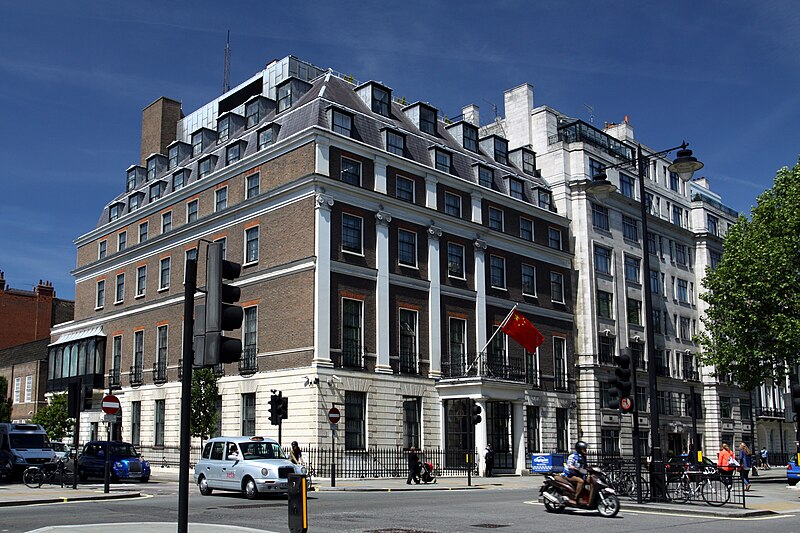
The UK government is expected to approve China’s proposal to build a vast new embassy complex in central London, despite mounting political controversy and security fears.
While ministers have not yet issued a formal decision, intelligence agencies are understood to have advised that the project can proceed—removing a key obstacle for what would become China’s largest diplomatic base in Europe. The development, first reported by The Times, is likely to intensify debate over Britain’s strategy towards Beijing at a time of geopolitical tension.
The final ruling rests with Housing Secretary Steve Reed, who must make what is known as a quasi-judicial decision. However, given the sensitivities, officials from MI5 and MI6 have also been consulted.
China intends to consolidate its London operations at Royal Mint Court, a site bordering the City of London and close to major fibre-optic cables carrying large volumes of sensitive data. The planned 20,000-square-metre compound would dwarf other embassies across the continent.
Supporters within government argue that a single purpose-built embassy may be simpler to monitor and that rejecting China’s long-held ambition for the site risks damaging diplomatic ties. But critics warn that the location could hand Beijing a strategic vantage point.
Conservative shadow foreign secretary Dame Priti Patel accused Prime Minister Sir Keir Starmer of “desperation” in his dealings with Beijing, warning that approval of the embassy would endanger national security. “It beggars belief that Starmer is jetting off to Beijing just months after the case against the alleged Chinese spies collapsed on his watch,” she said, claiming Labour is “kowtowing to China at every opportunity”.
Since last year’s general election, Labour ministers have sought to reset relations with China. Chancellor Rachel Reeves, Business Secretary Peter Kyle, and Foreign Office permanent secretary Sir Olly Robbins have all travelled to the country, and Starmer is expected to follow—though no official visit has yet been scheduled.
Speaking en route to the G20 summit in Johannesburg, the prime minister said the government’s stance remained unchanged: “Cooperate where we can and challenge where we must, particularly on national security.”
Sceptics argue that this approach underestimates Beijing’s intentions and leaves the UK vulnerable. Their concerns were amplified this week when MI5 issued a fresh alert to MPs and peers warning that Chinese intelligence operatives were posing as recruitment consultants on LinkedIn to gather political information. China dismissed the allegations as “pure fabrication”.
The issue has been further inflamed by the collapse in September of a high-profile espionage case involving two men, including a former parliamentary researcher, accused of spying for China. Prosecutors said the government could not supply evidence explicitly designating China as a national security threat. Ministers, however, blamed outdated legislation and the position of the previous Conservative administration.
With the Royal Mint Court decision imminent, the dispute over the embassy has become a defining test of how Britain balances economic engagement with China against growing security concerns—an argument that shows no sign of cooling. Photo by Chmee2, Wikimedia commons.


































